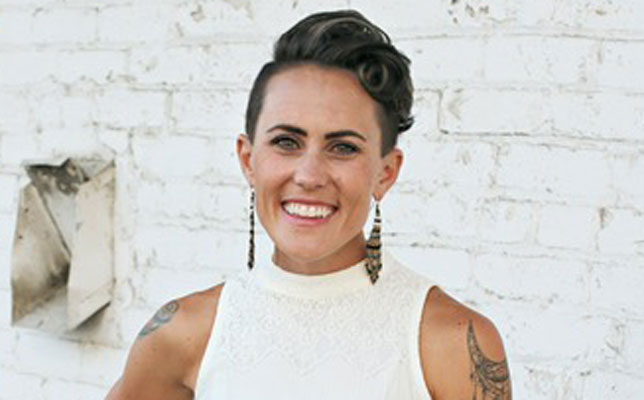This guest post is by Gina Crotts, a birthmother.
I started this blog post with your typical list of “things to know if you are considering adoption for your baby.” When in all reality, that list will not prepare you to place your baby for adoption.
I can give you a rundown of answers that you will find in every other article that you Google, and though these lists are helpful I prefer to stick to what is real and honest.
A transparent list of what you need to know if you are considering adoption for your baby.

Grief.
I remember as a kid being terrified that someone or something was hiding under my bed. I could barely make it from turning the light switch off to the center of my bed, each night, without a full blown anxiety attack.
Every night I played this game, how quickly can I get to my bed without the monster grabbing my legs. I’d lay there with the blanket high above my chest up to the tip of my ears in pure terror.
The longer I laid there the thoughts would slowly disappear and then I would peacefully fall asleep.
Grief is a lot like that monster under your bed. After placing my baby for adoption, grief followed me home, and it will follow you as well.
In the early nights after placement, I found myself trying to escape its grasp. I’d turn the light switch off as quickly as possible, jump into bed and cover my head.
Every night I had high hopes that grief had found a new bed to hide underneath. Every night, for those first few months, I was wrong.
Grief would haunt me in the middle of the night. He would show up at the grocery store, while I was cooking dinner or first thing in the morning.
It seemed like everything I did to safely jump to the center of my bed would not make him go away.
Until one day I accepted his recurring visits.
If you are considering adoption for your baby, educate yourself on grief. It will haunt you, it will hide under your bed, it will visit when you least expect it.
Knowing that it’s coming gives you all of the power. Accepting your grief, educating yourself on what is helpful during spouts of grief, will give you the upper hand.
Post Placement.
Where will you seek guidance? Where will you find support? What will your goals be?
You will get caught up in a lot of highly important decisions, don’t forget to remember that once your baby is with his/her new family, your life still goes on.
You will need support from fellow birthmothers, family, and or friends. When grief visits, have a plan in place. Who can you reach out to?
Finding a monthly or weekly support group can be very useful. Sitting in a room, a safe space, where you can share your story with fellow birthmothers or expectant mothers can be vital in your post placement therapy.
Not all adoption agencies are created equal. Don’t be naive enough to think they all have your best interest in mind, they don’t!
Ask about their post-placement support groups, guidance, and therapy. What happens to you after the baby is placed with their new family? These are the vital questions in picking an agency who will still care for you post placement.
What are your goals? For me, a driving force was I wanted my daughter to be proud of who I became. If and/or when I get to meet her someday, I want her to see the good in me.
I want her to look up to me. I want to be an example for her. This was a goal of mine. Set post-placement goals. It is easy to get caught up in victimizing our post-placement emotions and it can be difficult to navigate outside of those thoughts.
Set your goals before delivery and write them down where you can see them every day after placement.
Communication.
Communication is what you need to master if you are considering adoption for your baby.
Step 1: Communicate with yourself. You’ll need to be honest with yourself and your decision. Be honest with all parties involved, the birthfather, your family, and anyone who will play a role in your journey.
Step 2: Communicate with your adoption agency or a private lawyer. What are your needs and wants? What are your rights as an expectant mother in your state? Every state varies, and you’ll want to be aware of what your rights are during pregnancy and after you sign your parental rights away.
Step 3: Communicate with the adoptive couple. What does adoption look like to you? Are you considering open, semi-open or a closed adoption? Discuss this with your prospective couples.
Step 4: Communicate your grief and emotions post placement. Be honest with yourself and those around you.
Tell Your Story.
For decades adoption has been surrounded by secrecy. If you decide to place your baby for adoption, wear your birthmother title with pride.
Adoption is about love and immense courage, your courage. Share your story with honesty and with the intention to help those around you. The healing is in the sharing!
Gina Crotts is a birthmother. To read more about Gina and follow her adoption story, visit Gina Crotts.
Do you have a birthmother or open adoption story? Email us any time or find out more about how to share it with our community.
